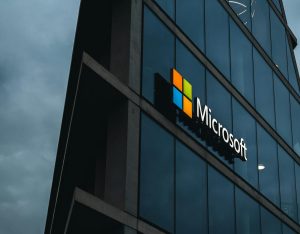Microsoft hires a project manager to create small-scale atomic reactors

Microsoft hires a project manager to create small-scale atomic reactors
Hiring a project manager to create small-scale atomic reactors, called small modular reactors (SMRs), is no easy task — but Microsoft has done just that. Archana “Archie” Manoharan has been selected for this esteemed position. Manoharan has worked in the energy sector for over 15 years, most recently as the director of nuclear strategy and programs at Ultra Safe Nuclear Corporation (USNC) — a business that creates technology development for Micro Modular Reactors (MMRs). Manoharan confirmed on LinkedIn that she has started her new role at Microsoft.
Long-term nuclear strategy and meaningful stakeholder relationships
Manoharan was in charge of USNC’s long-term nuclear strategy and meaningful stakeholder relationships for the MMR deployments of the business. She was manager of the USNC’s Department of Energy (DOE) loan program application efforts, and Microsoft will likely benefit from her knowledge there, too.
The action comes after Erin Henderson was named director of nuclear development acceleration by Microsoft last week. She is a seasoned energy sector veteran who comes to Microsoft from Tennessee Valley Authority, an electricity corporation, where she served as general manager of transmission projects.
Microsoft and other players in the data center space are investigating nuclear power for many significant motivations. First, they need to shift away from fossil fuels to reduce their carbon dioxide emissions; second, data centers’ high cost, high usage, and high energy consumption are increasing due to the need for more powerful hardware to meet the demands of artificial intelligence processing.
Reactors can be prefabricated and installed at data center sites after transportation
Small modular reactors, or MMRs are attractive to Redmond because of their small size (up to 300 MW in output) and modular design. These reactors can also be installed at data center sites by being transported there and prefabricated, reducing its construction costs compared to large-scale fission reactors that power entire regions or cities.
Microsoft has a long game in mind. It made a purchase agreement with Washington-based Helion Energy last year with the lofty goal of constructing the first nuclear fusion power plant in history.
Featured Image Credit: Salvatore De Lellis; Pexels



